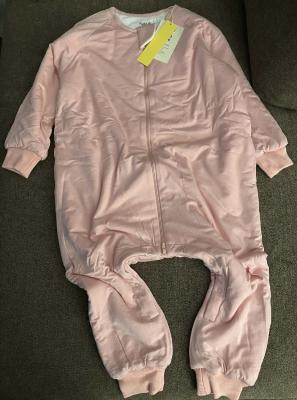Recall Issued for Space Heaters and Baby Sleepwear Due to Burn Risk
The heaters were involved in seven fire incidents and one reported burn injury.
Thousands of units of infant sleeping suits and electric space heaters have been withdrawn from the market amid concerns these items pose a fire risk to consumers.
In total, around 20,500 units are being pulled recalled. The items were sold online on the company website between November 2022 and March 2024 for roughly $75. No injuries have been reported so far, the notice said. The recalled items were sold in M, L, and XL sizes in 16 colors.
“Consumers should stop using the recalled slumber suits immediately and contact Kyte Baby for instructions on how to destroy or return the garments for a full refund or a store credit for the original purchase price plus free shipping and handling. Kyte Baby is contacting all known purchasers directly.”
Roughly 512,500 units were recalled across the United States, with around 48,600 pulled from Canada. The items were sold via the company website, app, TikTok shop, and Amazon between September 2021 and September 2024 for between $30 and $150. They were also manufactured in China.
There have been 113 reports of overheating as well as seven incidents of fire, with one of the heaters causing a minor burn injury.
Flammability Standards and Risks
There are stringent flammability standards issued for various products sold in the United States. For instance, sleepwear garments targeted at children must not be 100 percent cotton, rayon, or silk.
Similarly, regulations pertaining to upholstered furniture requires that these products be subjected to certain flammability testing and labeling standards.
“The standard was created to reduce house fires, as upholstered furniture is frequently the first thing to catch fire in a house fire,” the agency notes.
Cooking equipment accounted for the largest share of fires. There were an estimated 157,100 cooking equipment-related fires every year, making up 44.6 percent of total residential fires.
Fires triggered by heating and cooling equipment came in at the second spot, followed by those caused by electrical distribution equipment.
The Nov. 7 recall of slumber suits and space heaters are some of the latest product withdrawals initiated over fire risk.
The CPSC received 31 reports of flame jetting that involved 19 burn injuries. Two incidents led to third-degree burns over more than 40 percent of the victims’ bodies.



